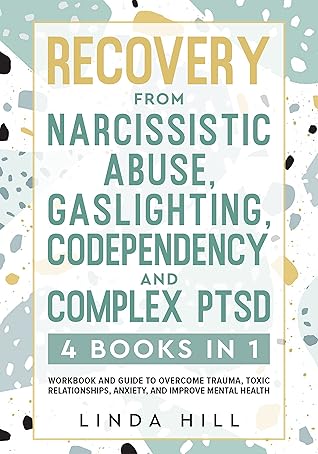More on this book
Community
Kindle Notes & Highlights
by
Linda Hill
Read between
November 28, 2023 - February 27, 2024
This is one of the highest forms of manipulation and leaves the victim confused and doubting their own sanity. When it’s allowed to go on long enough, the victim loses their ability to trust themselves or their own perceptions of what’s real.
They tell you that you aren’t remembering something right or that you’re plain out wrong when you know you are right. ○ They make you feel that your thoughts and feelings don’t matter to anyone else, either. ○ They withhold information, then act like they don’t know what you’re talking about. ○ They give you the silent treatment. ○ They make you doubt your own thoughts by questioning the validity of them. ○ They justify their actions because it’s for your own good. ○ They deny something ever happened.
Never give them ammo. Guard your thoughts, feelings, and other areas of your inner self carefully. Anything you reveal to them, they will use against you in some way.
You don’t owe them explanations or justifications. If anything, they owe this to their victims, but it shouldn’t be expected. Trying to explain or justify feelings to a narcissist is another way to hand them ammo. They don’t communicate, they won’t reason and they don’t care about working out issues. All they care about is winning.
Never minimize or downplay their behavior.
Don’t expect accountability. This point has been touched on earlier, but understanding that they won’t take onus for their behavior saves a lot of time and energy. If you want to verbalize their responsibility for their actions for ease of mind, that’s certainly appropriate. But don’t expect them to take what you say to them to heart.
Put yourself first. This is a difficult thing to put into practice when you’ve been forced to put someone else before your own wants and needs. Keep yourself in front and don’t give them the power to bring you back into their web.
They’re making you look bad. In order to maintain their facade of perfection, they make you look like a bad person. Usually this involves spreading rumors, criticizing you behind your back, or creating lies you supposedly told. The worst part is that when you try rectifying the situation, or laying the blame where it should belong, the narcissist uses your defense to back their own lies.
You lost touch with the real you. The person you become when with a narcissistic abuser is very different from the person you were before you got involved with them. They’ve turned you into who they want you to be, making you feel lost and insecure with no sense of true purpose.
You walk on eggshells. This happens when you try avoiding any sort of conflict, maltreatment or backlash by going above and beyond to make the abuser happy.
Re-set your boundaries. A boundary is an unseen line in the sand. It determines the point you won’t allow others to cross over or they’ll hurt you. These are non-negotiable and others must be aware of them and respect them. But you have to know what those lines are before making them clear to others.
Talk with your child and teach them the art of negotiation and fair treatment. Don’t allow any abuse around them and don’t lower yourself to the abuser’s level by insulting them, putting them down, or otherwise openly expressing negative feelings. If you’re showing your child the very best, non-conflictive behavior to deal with others, even when being influenced by the narcissist, then you’re teaching them the right way to deal with adversity. It may not seem like it initially, but they do see and appreciate what you’re doing. Down the road, it will be you they’ll respect for handling things
...more
Somatic experiencing: For those who have PTSD, or another form of trauma, this is a way to focus on bodily reactions to the event before addressing the psychological symptoms. For many survivors, the symptoms are so unpleasant they block any other form of therapy to deal with the actual traumatic event. Connecting with how that event made the body feel, and work through those emotions, puts a person in a stronger state to deal with the trauma in a healthier way.


